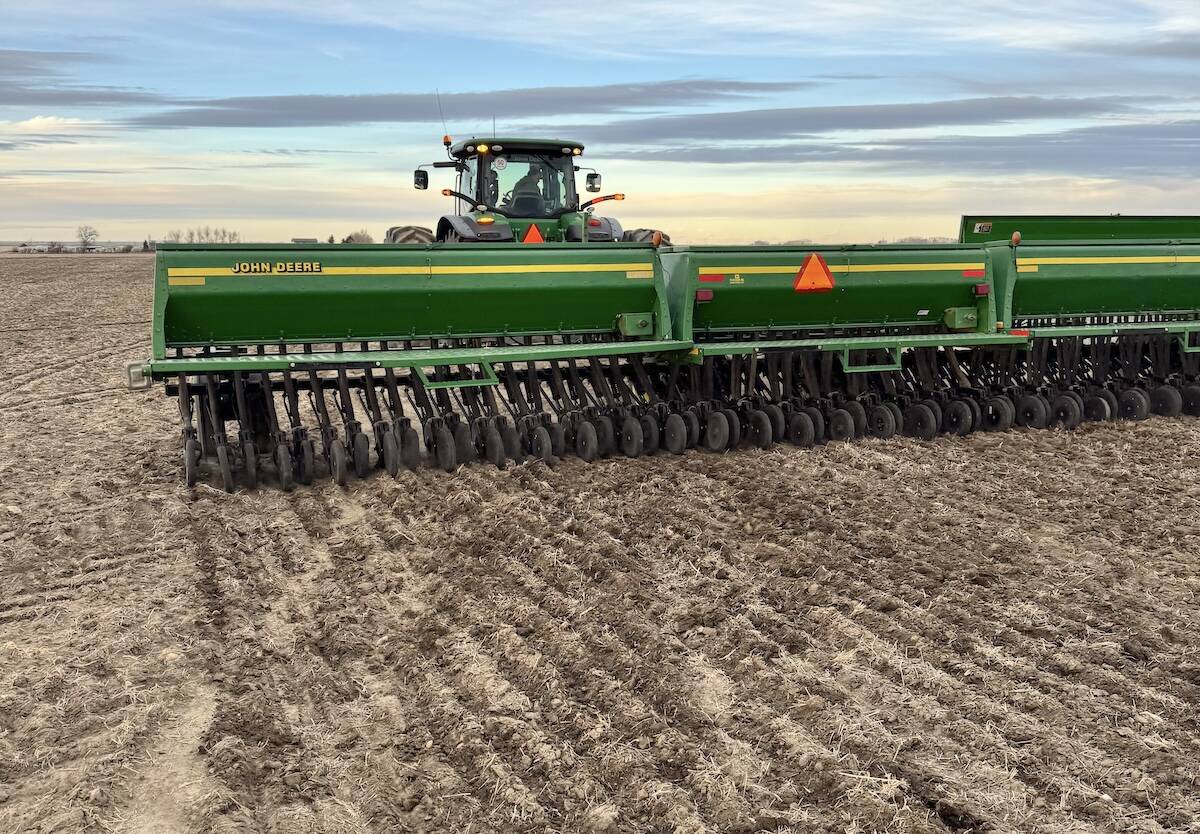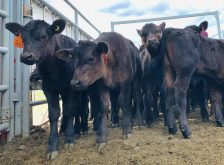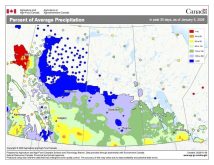Albertan government officials and farmers are displeased with a private member’s bill currently moving through the Senate that they say could decimate agriculture in the province if it passes.
Bill C-293- An Act respecting pandemic prevention and preparedness, contains provisions regarding anti-microbial resistance and could regulate commercial activities that can contribute to pandemic risk, including animal agriculture. The bill has been introduced by Toronto MP Nathaniel Erskine-Smith, an advocate for animal welfare who has written about his veganism and the importance of social change toward the treatment of animals.
RJ Sigurdson, Alberta’s agriculture minister, said at a recent press conference that the bill is a danger to the provincial economy, and encroaches on the province’s constitutional jurisdiction.
Read Also

From winter soil to bountiful crops: Alberta’s ultra-early seeding experiment
Southern Alberta farmers are putting research into practice, pushing ahead traditional seeding times by months for spring wheat and durum.
“These proposed changes could devastate Alberta’s agricultural industry and have huge negative consequences on producers, processors and our entire provincial economy,” he said.
Bill C-293 was introduced two years ago, but as it is getting closer to being tabled, producers are getting more concerned.
A section of Bill C-293 recommends the federal minister of agriculture and agri-food, the federal minister of industry and provincial governments prepare to reduce risks posed by antimicrobial resistance and regulate commercial activities that can contribute to pandemic risk, including industrial animal agriculture. Bill C-293 also recommends increasing the production of alternative proteins.
“If the bill passes through the Senate, the federal government would have the discretionary power to allow public health officials to shut down facilities like livestock operations and meat processing plants without clear objective criteria,” said Sigurdson.
This could disrupt meat supply chains, and agricultural operations linked to them, like feed production, he said, adding that Canada’s role as a major food supplier would be at risk, threatening overall global food security.
“One of my main concerns is that the bill proposes to regulate and possibly phase out some farming practices that public health officials believe could propagate a pandemic,” said Sigurdson. “This could alter farm and ranch operations, affect producer and processor livelihoods and impact our economic stability for the worse,” he said.
Sigurdson has sent letters to the Senate, and the federal ministers of agriculture and health to express concern. He has asked the Senate to consider amendments to the bill to avoid any unintended consequences.
“Canada already has legislation, animal disease surveillance and action plans to make sure our farm food safety and biosecurity programs reduce the risk of diseases that can move from animals to humans,” he said.
“We admit that we need to learn from previous experiences, and Alberta supports pandemic preparedness based on science,” he said.
“I call upon Canada’s Senate to reconsider this bill in its current form, to work with Alberta and our industry members to make changes to the bill as this bill has public health implications.”
Adriana LaGrange, Alberta’s minister of heatlh, also hasconcerns about the bill and questioned whether it would truly improve pandemic preparedness on a local level.
Bill C-293 introduces mitigation strategies that may not align with local health data and does not adequately reflect specific regional needs, she said.
“These plans must take account the unique challenges faced by every jurisdiction,” she said. “Alberta will make decisions about responding to public health emergencies in a way that serves Albertans, not the federal government,” she said,
Representatives from producer groups expressed their concerns.
David Hyink, chair of the Alberta Chicken Producers, said the bill affects the entire value chain of chicken producers.
“We support pandemic preparedness, but Bill C-293 unfairly targets animal agriculture and could potentially threaten the livelihoods of our farm families,” he said.
Hyink said Alberta’s chicken farmers follow strict biosecurity and animal welfare standards, which are recognized and audited at the federal level.
“Despite this, the bill overlooks these protections and instead imposes additional and unnecessary regulatory burdens on farmers,” he said.
The Chicken Farmers of Canada has been recognized by the International Poultry Council as being a global leader in the implementation of a responsible antibiotic reduction strategy, designed to benefit both birds and consumers.
Overregulation could lead ot disruptions that threatened the livelihood of “thousands of Alberta families” and threaten the local supply of chicken to consumers, he said. He called for the bill to be amended to strike a “balanced, science-based” approach to pandemic prevention.
“”The bill should also support existing biosecurity and health initiatives, rather than adding redundant regulations,” he said.
Doug Roxburgh, vice-chair of Alberta Beef Producers, said the organization supports emergency prevention and preparedness.
“While we support the overall objective of Bill C-293, we have significant concerns about its current form,” he said.
“Beyond devastating livestock producers, Bill C-293 indicates a clear bias against livestock industries and contradicts other environmental goals like those around the economy and biodiversity.”
Roxburgh stressed that antimicrobial stewardship is important for farmers and ranchers.
“We need antimicrobials now, and in the future for ourselves, for our families and for our livestock. We are concerned by Bill C-293’s focus on animal agriculture as a driver of antimicrobial resistance, without considering the broader sustainability perspective that integrates and interconnects the health of humans, animals and the environment.”
Roxburgh urged the Senate to further engage with animal agriculture sectors, to refine the language of this bill so it reflects a fair and balanced approach that supports emergency preparedness without targeting livestock industries.
Sandra Spruit, a hog producer and board member of Alberta Pork, agreed that Bill C-293 unfairly targets the livestock industry.
“It implies that the livestock industry in Canada is not responsible, accountable and credible,” she said.
“The intent of specific sections of this bill leads one to believe that there are underlying alternatives that go beyond pandemic preparedness and prevention,” she said.
She said Bill C-293 does not recognize the pork industry’s responsible use of antimicrobials that are controlled by veterinary prescription, as well as their globally recognized national food safety, animal care and biosecurity programs.
Sigurdson said the language in the bill is extremely dangerous because there are no clear objectives, and the bill will have a huge impact on any investment in the agricultural sector.
He said the federal government needs to rethink the bill, as so many producers are concerned about the wording of the bill.
“It’s a call to action to the federal government to come back to the table and work with our livestock producers to make changes,” he said.
















